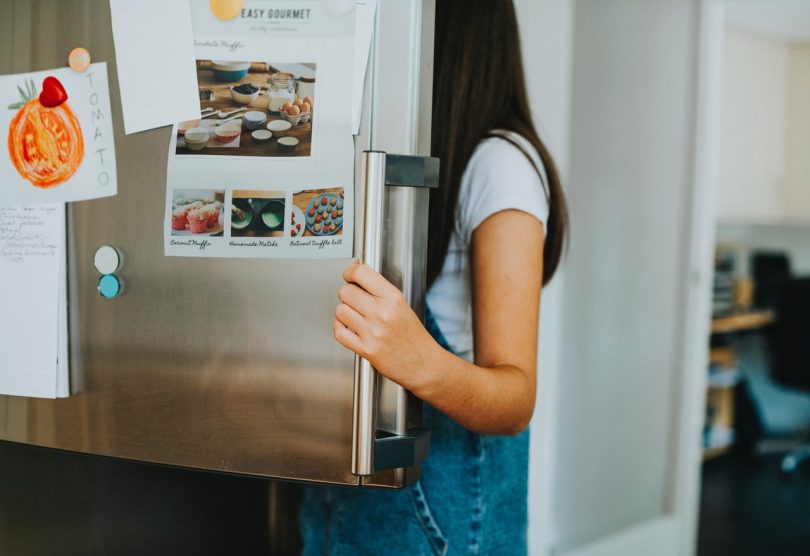
Paige Courtice and Naomi Oh are Clinical Registered Dietitians at Providence Health Care. Today they offer us their insight on wading through the wellness and diet industry and introduce us to “intuitive eating”.
With a growing interest in health and wellness, it’s only a matter of time before a new diet cycles through our networks. We are constantly bombarded with messages about the latest diet or trendy superfood so how can we incorporate healthy eating habits that enhance our wellbeing, while celebrating balance?
A recently published article in the New York Times received a lot of attention for its critique of the ‘wellness industry’, which the article claims is synonymous with the diet industry. Article author Jessica Knoll explores the pitfalls of demonizing junk food and the excessive focus on ‘clean eating’.
For the public, it can feel like an overwhelming feat to sort through the conflicting nutrition recommendations we often hear about and distinguish the facts from fiction.
This is where dietitians come in handy.
We’ve compiled some tips to help you navigate diet culture and nurture a positive relationship with food.
Remember that your food choices don’t determine your worth.
Dietitians often hear our patients (and friends, family, and colleagues) share with us all the ‘bad’ foods they have been eating, or that they’ve actually been eating only ‘good’ foods this week. In reality, there is no one food that is indefinitely ‘bad’ or ‘good’. In fact, it’s more about the ‘sum of our parts’. The sum being the dietary patterns and inclusion of a variety of nutrient-dense foods most of the time that contributes to our health.
Labeling foods as ‘good’ or ‘bad’ gives an imbalance of power to food, and discredits the trust that we should have in our body’s ability to process nutrition. What happens when we eat a ‘bad’ food? Do we become ‘bad’ as well? Of course not! Guilt and shame are not feelings that should be associated with food. Shift your focus from judgement to self-compassion and give yourself permission to enjoy your food (including treats!) Recognizing that food is a necessary aspect of our lives is a good first step to ‘fight back’ against harmful wellness industry lingo.
Listen to your body
The crux of the ‘intuitive eating’ movement is just that: to be intuitive with what your body is telling you when you feel hunger. It’s important to honour yourself and your health by listening to when and why you feel hungry, and to recognize that it is one of the most normal and human things to feel.
We’re all aware of that 3 pm slump when we’re feeling sleepy, grumpy and hungry. It’s probably been about two to three hours since we ate lunch, and our bodies are telling us that they’re going to need a bit more fuel to get through the rest of the afternoon.
This describes physical hunger but it’s also important to recognize emotional hunger. For example, having a stressful week at work may make us feel angry, sad and frustrated. We may crave certain foods not because we’re necessarily hungry, but are seeking some form of comfort. This is a coping mechanism and it’s important to recognize that.
However -it’s also a very normal part of the human experience. Being in tune with why we’re feeling angry, sad and frustrated and why that is making us seek a form of comfort is the cornerstone of being intuitive with ourselves, and our hunger.
Understand that the wellness industry is an industry
To quote the Jessica Knoll’s article: “the diet industry is a virus, and viruses are smart.” Wellness/diet companies are focused on meeting their bottom line, and will promote supplements/diets/detoxes/lifestyles specifically designed to capitalize on what we’re the most insecure about, or didn’t know we were supposed to be insecure about. As Jessica Knoll points out in her article: “when you have to deprive, punish and isolate yourself to look “good,” it is impossible to feel good.” Focusing on what makes us autonomously ‘feel good’ without the external pressure of an industry driven to make capital puts us, as consumers, back in control.
The wellness industry is an expertly calculated machine to continue churning out the latest trendy diets, cleanses and products to make us believe we need to be taking better care of ourselves and to be hyper-focused on what we eat. The industry wants us to believe we don’t know what’s best for our bodies, and pushes us to remove all trust from one of the most natural human processes -eating and enjoying food.
So whatever the next fad may be, consider the above tips to help you navigate the complex microcosm of the wellness industry.






This was a great article about “good” and “bad” food. Thanks so much for the read! There seems to be a lot of judgement on people about their eating habits.
“Understand that the wellness industry is an industry” — well said! This is now ingrained in my mind every time I have the urge to click on that Instagram ad promoting the next fad diet or when that fitness “guru” promotes their lifestyle.